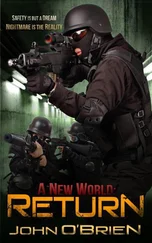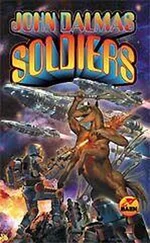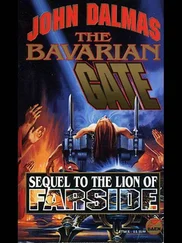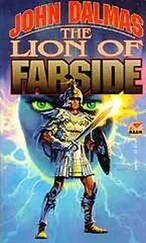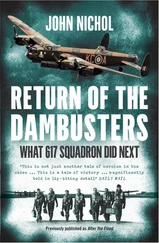John Dalmas - Return to Fanglith
Здесь есть возможность читать онлайн «John Dalmas - Return to Fanglith» весь текст электронной книги совершенно бесплатно (целиком полную версию без сокращений). В некоторых случаях можно слушать аудио, скачать через торрент в формате fb2 и присутствует краткое содержание. Жанр: Фэнтези, на английском языке. Описание произведения, (предисловие) а так же отзывы посетителей доступны на портале библиотеки ЛибКат.
- Название:Return to Fanglith
- Автор:
- Жанр:
- Год:неизвестен
- ISBN:нет данных
- Рейтинг книги:4 / 5. Голосов: 1
-
Избранное:Добавить в избранное
- Отзывы:
-
Ваша оценка:
- 80
- 1
- 2
- 3
- 4
- 5
Return to Fanglith: краткое содержание, описание и аннотация
Предлагаем к чтению аннотацию, описание, краткое содержание или предисловие (зависит от того, что написал сам автор книги «Return to Fanglith»). Если вы не нашли необходимую информацию о книге — напишите в комментариях, мы постараемся отыскать её.
Return to Fanglith — читать онлайн бесплатно полную книгу (весь текст) целиком
Ниже представлен текст книги, разбитый по страницам. Система сохранения места последней прочитанной страницы, позволяет с удобством читать онлайн бесплатно книгу «Return to Fanglith», без необходимости каждый раз заново искать на чём Вы остановились. Поставьте закладку, и сможете в любой момент перейти на страницу, на которой закончили чтение.
Интервал:
Закладка:
My hands weren't my only problem. By the end of my first shift, my legs and back and arms were really tired. I kind of semi-recovered on the off-shifts, but by the end of the day I was more exhausted than I'd ever been before. When Michael gave me the good word that the captain wasn't going to make us row at night, I was too tired to be ecstatic, just awfully grateful.
On our first off-shift, Arno came over to me. "I've heard what you did to Jon Eriksson," he said. "Apparently it was you who took my weapons of power."
I resisted the impulse to remind him who "the weapons of power" actually belonged to, "Just the stunner," I said. "And I'm keeping it. The blaster went flying when the ax hit you. It's probably on the other ship with your horses."
He gestured at his belt, with its sword, dagger, and recharge magazine attached, "These were returned to me," he said, "and even my purse of gold. But this"-he indicated the magazine-"is empty. Who would have taken its contents except you? And why would you have taken them if you did not have the blaster?"
"Arno," I told him wearily, "I may have lied to you a time or two, but not this time." With an effort, I got to my feet. "Come on," I said, and headed for the stem. Arno followed, puzzled. I beckoned to Michael to come along too, and went to where Gunnlag stood with the steering oar under one brawny arm. "Gunnlag," I said, "when you attacked our ship, Amo had a marvelous device from India which I had given him. I saw it fly from his hand when he was struck by the ax, but it did not go into the sea. It was of metal, and about this long"-I showed him with my hands-"with a short handle at one end. Would you find out if any of your men have it? It would have been just lying there, and they could not have known that it was his. I'd like him to have it again if possible."
I said all that in short sentences, Michael interpreting. When I was done, Gunnlag nodded. "I will ask at midday, when we stop rowing to eat."
"And there was something else," I added. "Some small objects that were kept in this." I touched the magazine on Arno's belt. "He thought I had taken them for safekeeping, but I had not. Perhaps someone else has them."
In response, Gunnlag bellowed a name, and one of the Varangians came over. They talked briefly in Norse.
"It was Torkil here who took the strange objects from Arno's purse," Gunnlag said to me through the Greek. "They seemed useless to him, so he threw them aside, but not into the sea, he thinks. Perhaps they are on the other craft."
I thanked him then and returned to the bow. Arno followed, looking at least as unhappy as before. "You have humiliated me," he said grimly when we'd sat down,
"How did I do that?"
"By taking up my cause with Gunnlag. It was mine to do."
I stared at him. "Is that how things are done among the Varangians? Or is that a Norman way? Or perhaps only your own feeling about it? Gunnlag didn't seem to think there was anything wrong
with what I did."
That stopped him. "Besides," I went on, "you didn't believe me when I told you I didn't have them. I thought if they turned up from someone else, that would settle it. As far as that's concerned, you'd practically accused me of stealing them from you, when actually you'd stolen them from me. Now Gunnlag is your witness that I said I gave them to you. It seems to me you don't have much to complain about."
He sat frowning, not really looking at me. I guess he was thinking. Then he nodded curtly and moved a few feet away where he sat facing aft. I lay back and closed my eyes until our shift went on again.
He felt a lot better at midday break, when one of the Varangians came up with the blast pistol I was glad it had a so-called "shelf safety"-the second safety that Arno hadn't known about. Otherwise the Varangian, poking around in curiosity, might easily have shot a hole in the bottom of the ship, or killed some shipmate. I showed Arno how to disengage it, and advised him to leave it on when he was just wearing it around.
In turn, Arno was halfway friendly toward me again.
During our other off-shifts, with Michael's help, I talked with a few of the Norsemen, including Gunnlag Snorrason. The captain was from a Norse kingdom called Sweden, and at sixteen had gone to the Rhos land, where the warrior band he belonged to took service with a great prince named Jarisleif from time to time. Apparently the Rhos princes fought one another a lot. Jarisleif himself was descended from a Swede, as were most of the princes there.
Between hostilities, the Varangians occasionally raided Slav villages, selling their captives as slaves to the Greeks. Gunnlag laughed after he told me that. It had seemed, he said, as if the Greeks had all the gold in the world. So when his chief had a falling out with Jarisleif, their band had gone south in boats, down a great river to the Black Sea.
It had been a dangerous trip. The southernmost end of the river flowed through grasslands held by the Patzinaks-dark fierce horse barbarians who grazed their herds there. Reaching the Black Sea, the Varangians had rowed to Miklagard to take service with the Greek Emperor. Miklagard had proved everything men said of it.
Gunnlag cocked an eye at me then. "Surely you have been to Miklagard. How could one come here from India and not visit Miklagard?"
"Through the sky," I told him. "Through the sky." And he believed me, or that's how it looked, anyway, because after probing me with his eyes for a moment, he nodded.
He'd fought for the Emperor for eight years, Gunnlag told me, then had shipped home to Sweden. With the gold he took with him, he'd had this ship built on a great lake called Vanern, then rode it down the river Gota to the Northern Sea. In his youth, the old man who'd built it had built ships for the last of the Vikings. This one was built much like them, for ease of rowing, but a bit broader and deeper of keel for long sea voyages. By having his passengers row when the winds were not favorable, the trips went faster and there was less quarreling on board.
This had been Gunnlag's third voyage carrying pilgrims to the Holy Land. But when they had stopped at Crete, they'd been told by an admiral of the Byzantine Emperor that pilgrims landing in the Holy Land recently had been sold into slavery there. The Emperor was gathering a new army to punish the Saracens for it, and surely those who took part would be rewarded not only with gold in this life but with Heaven afterward.
Most of the Swedes had planned to go to Miklagard anyway, after first visiting the holy city of Jorsala where the Christ had died. Instead, following this bad news, they went directly to Miklagard, where most of them entered service in a Varangian regiment. Gunnlag had recrewed his ship with Varangian veterans wishing to return to the lands of their birth. Now, aboard ship, there were not only men from Sweden, but from Denmark, Norway, and even distant Iceland, all speaking dialects of Norse. There were even two who'd been born in the Rhos land and had never seen the home of their fathers, though they could speak their tongue.
That night, lying chilled in the bottom of the long ship, I couldn't help wondering if the Fanglithans would ever become civilized. But then I remembered Brother Oliver and the monks, and Isaac ben Abraham. And back in Normandy, Father Drogo and Pierre the tanner, each of them a man of peace. Maybe dominance by warlike cultures was just a phase, one that Fanglith would have to live through.
Then what phase was the Federation-turned-Empire in? Was tyranny just a phase? If it was, it had been recurring for a long time. And meanwhile, I told myself, what I needed was warriors. The Glondis Empire made slaves of peaceful people.
TWENTY-TWO
The next morning I was so stiff and sore I couldn't believe it. Me, who'd always been so good at athletics, who'd been one of the stronger kids in school! I could hardly close my hands or pick up food with them. About my only consolation was that I wasn't the only one. Michael and Arno weren't moving around too well either. I don't suppose Arno's sword-callused right hand was peeled raw like mine, but I wasn't so sure about his left.
Читать дальшеИнтервал:
Закладка:
Похожие книги на «Return to Fanglith»
Представляем Вашему вниманию похожие книги на «Return to Fanglith» списком для выбора. Мы отобрали схожую по названию и смыслу литературу в надежде предоставить читателям больше вариантов отыскать новые, интересные, ещё непрочитанные произведения.
Обсуждение, отзывы о книге «Return to Fanglith» и просто собственные мнения читателей. Оставьте ваши комментарии, напишите, что Вы думаете о произведении, его смысле или главных героях. Укажите что конкретно понравилось, а что нет, и почему Вы так считаете.

